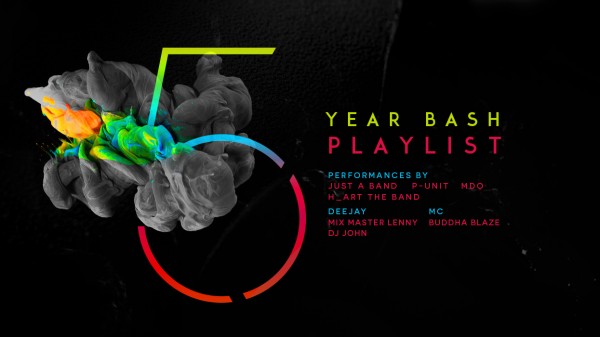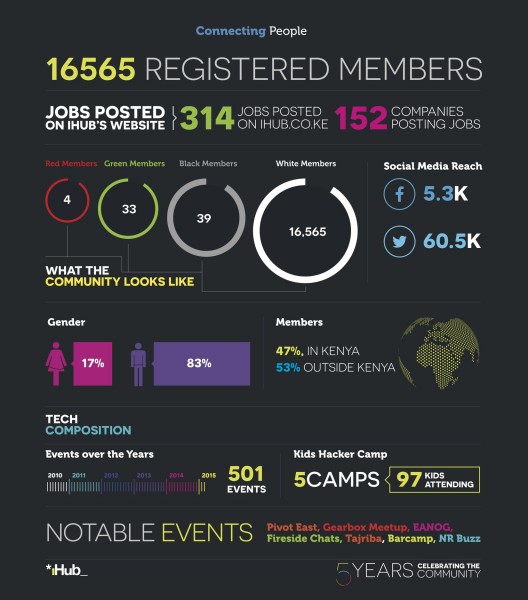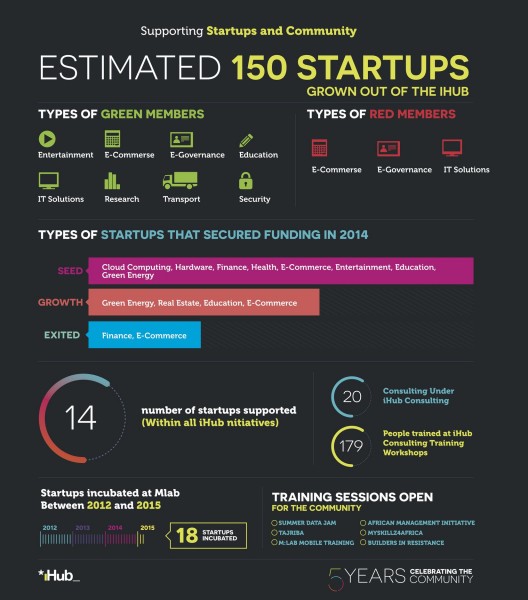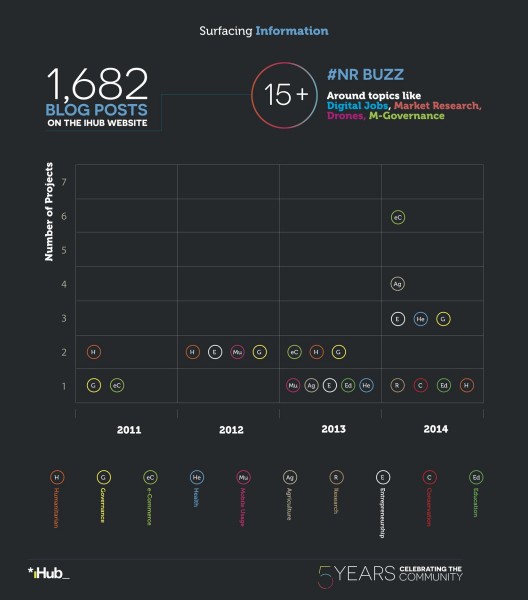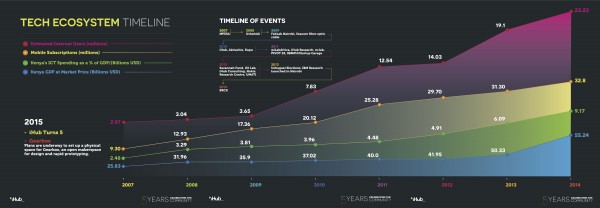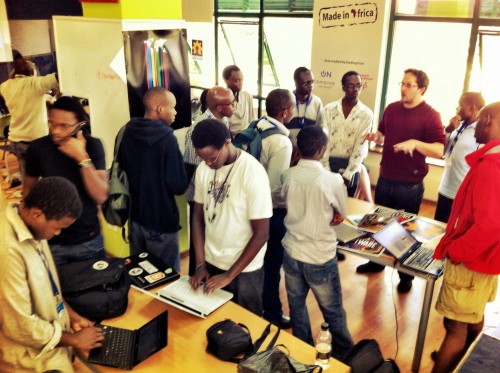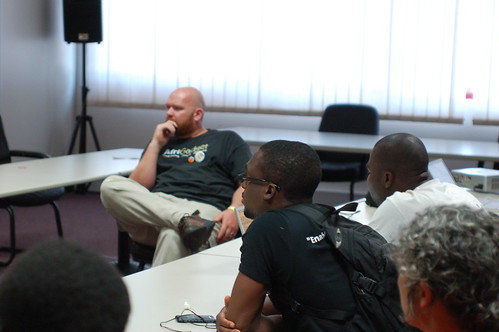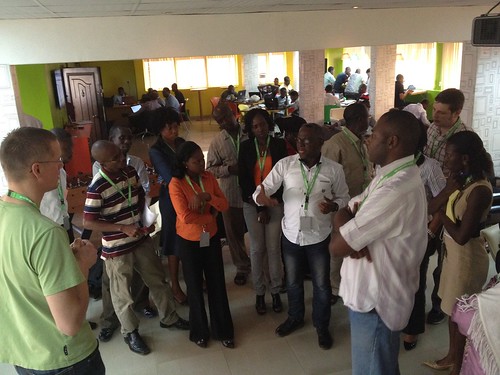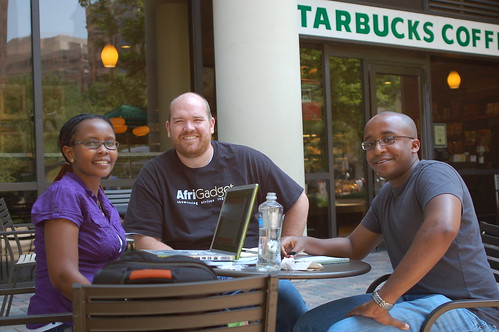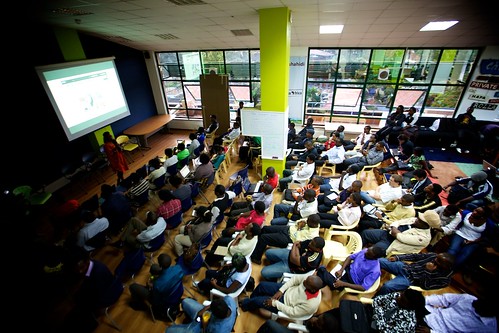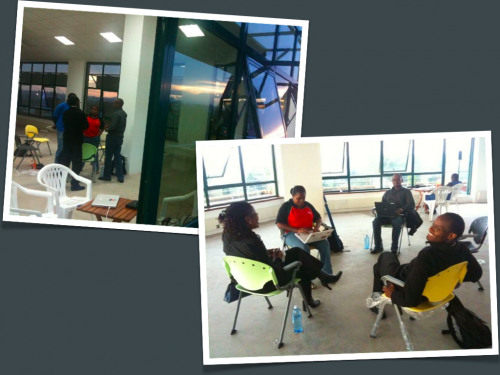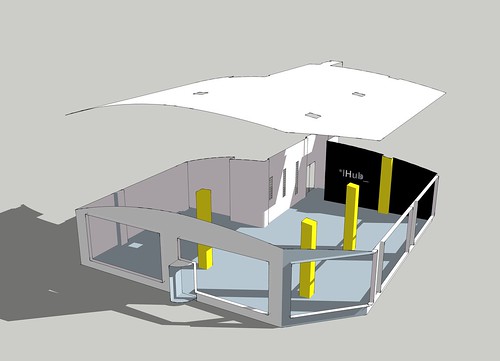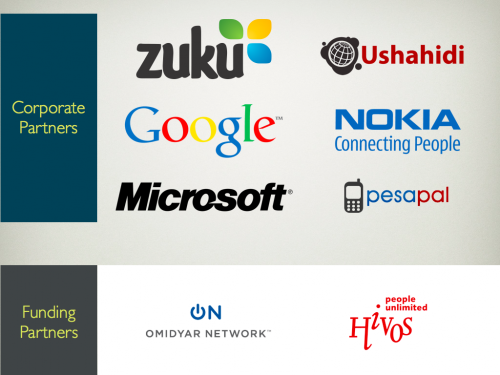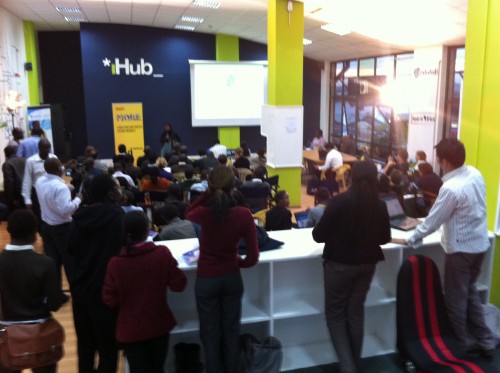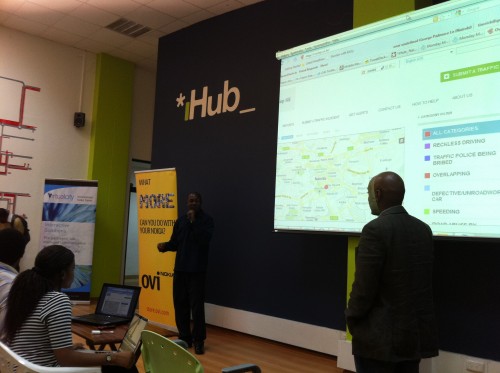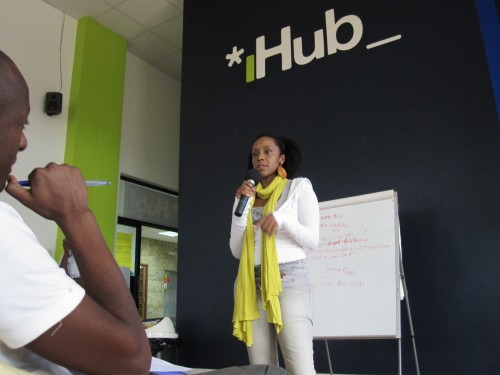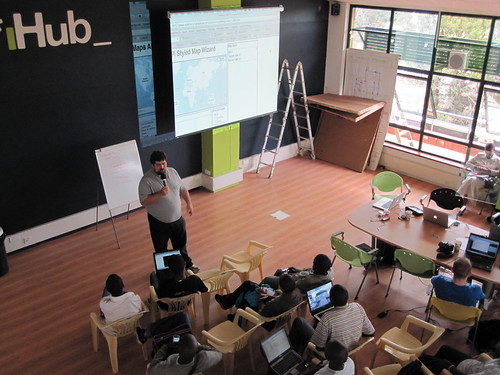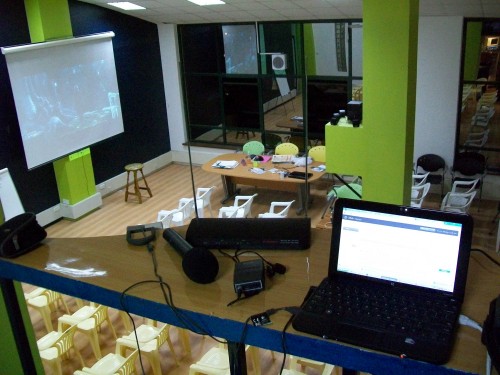
Celebrating the Community – iHub’s 5 Year Tech Bash
43 companies in the Kenyan tech scene have come together to put on an event for 3,000+ people in the tech community, the #5yrTechBash at the Arboretum. The iHub is turning 5 and it’s a testament to the people and companies who make up this space that we’re thriving and have a chance to celebrate.
It’s a community event by all of us, for all of us!
Community as our Legacy
There has been a long history of the tech community in Kenya coming together, from Skunkworks and Barcamps to the iHub itself. I tend to think of community connectedness as one of Kenya’s key competitive advantages. Read this blog post by the founders of Angani, a company made up of some of the pioneers in the space, to understand some of the background on how this has come together.
If you read this post I wrote on “What makes the iHub Work” from 4 years ago, you’ll see that it’s a combination of many people that ultimately makes it different and why it still makes such an impact on people’s lives. Also take a moment to read Josiah Mugambi’s piece on the last 5 years.
Tracking the Numbers
One of the great strengths of the iHub is the serendipity that you have by coming in and running into people. However, that’s an inherently difficult thing to measure. I wrote a blog post 1.5 years ago about “what has the iHub done“, and it’s time for an update.
If you’re a place like the iHub with your own Research arm, then you measure other things, this from Leo Mutuku and the team at iHub Research:
In the second year of the iHub, we started the iHub Research arm and the m:lab, both of which have excelled. iHub Research’s job is to shares stories about the vibrant East African technology community by conducting ICT research on technology innovation within the community. Here’s what they’ve done:
To the next 5!
As much as the big bash today is a celebration of the past 5+ years, it’s also a time to get ready for the NEXT 5 years. While we’ve made a lot of progress as a whole, we’ve gotten much further than many thought we could in this time, we still have a long way to go.
A Gallery of Pics
EDIT: Wanted to add some pictures that bring me the memories of the faces and events of the past few years.
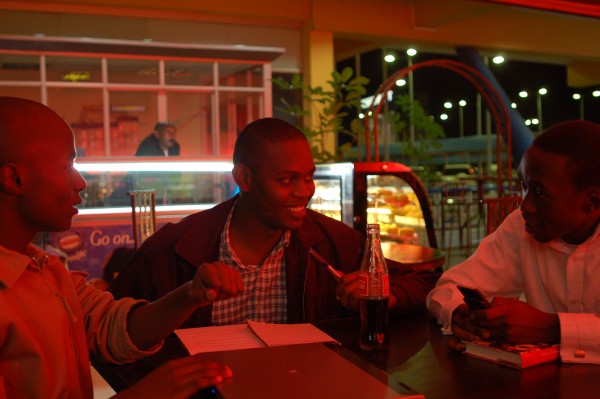
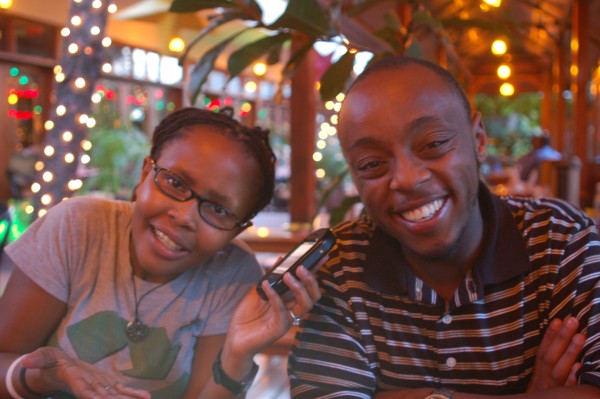
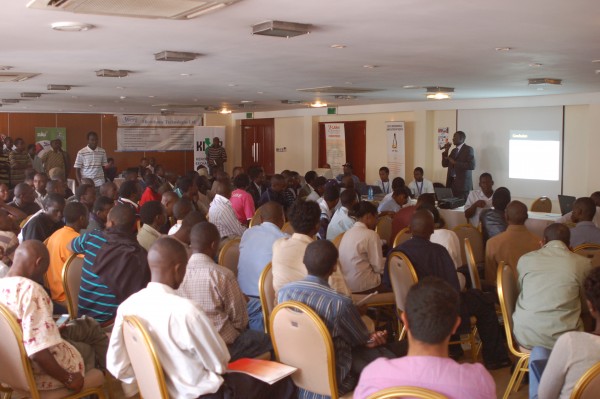
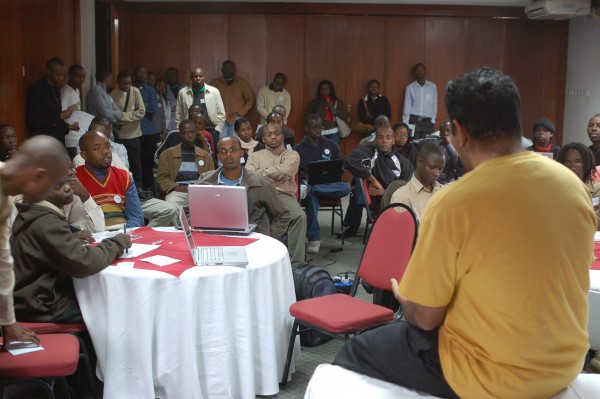
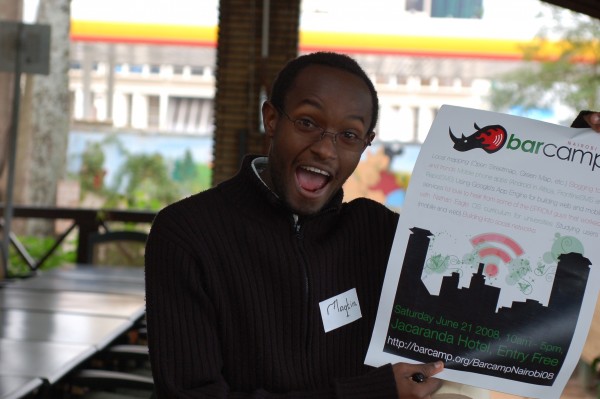
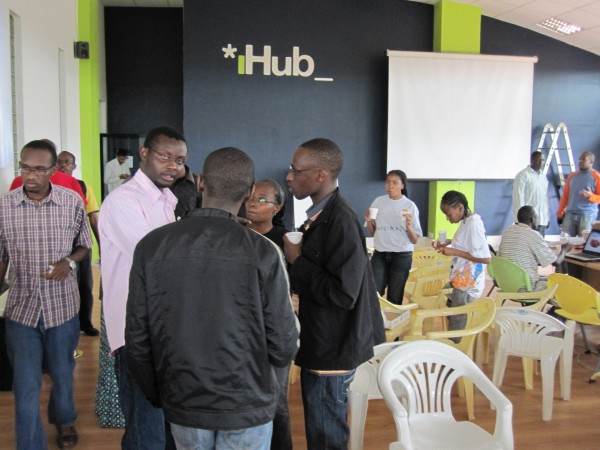
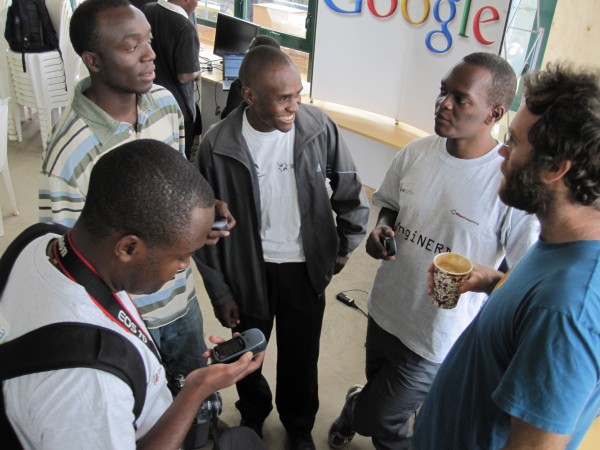
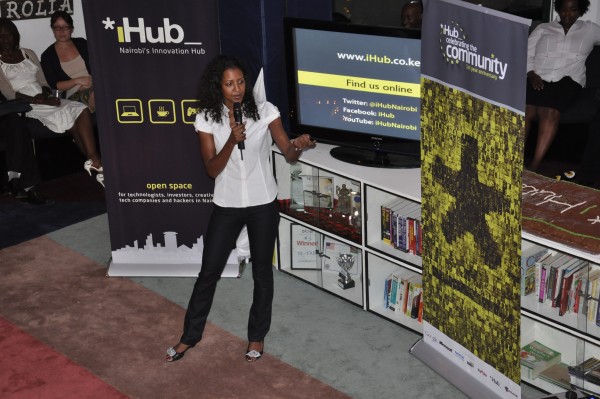
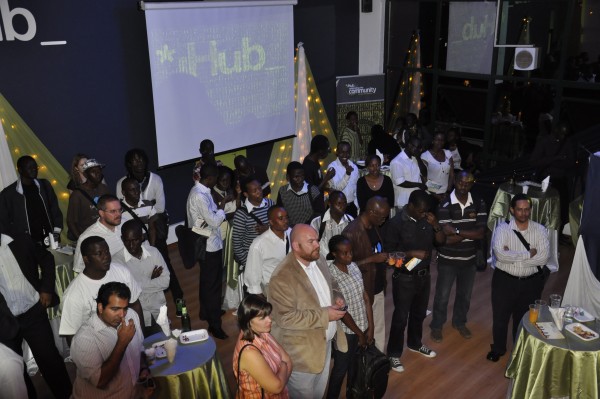
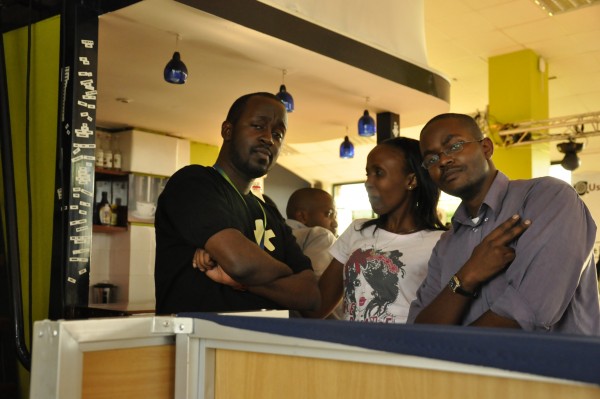
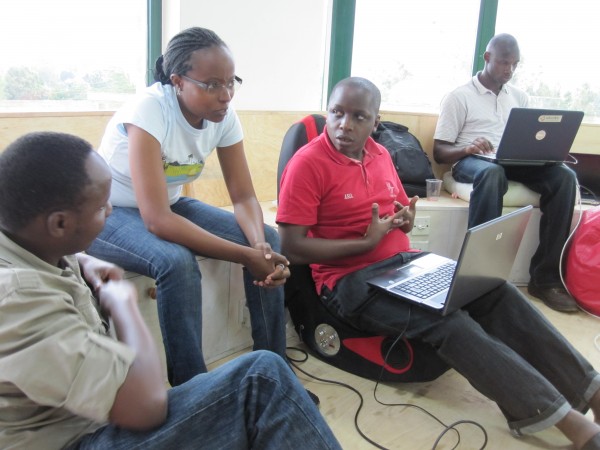
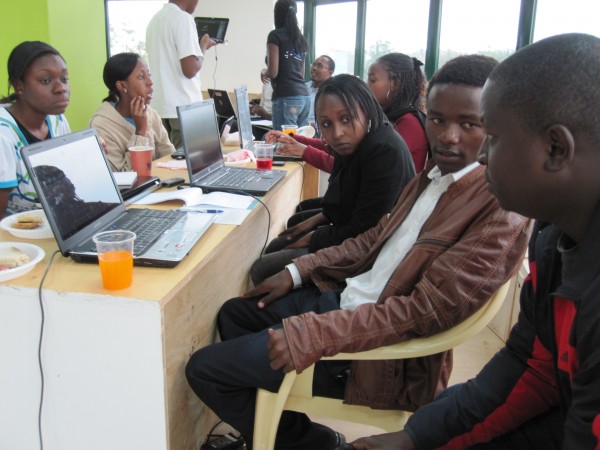
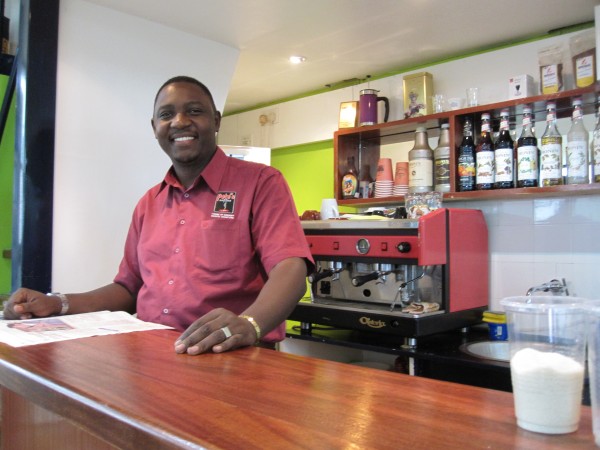
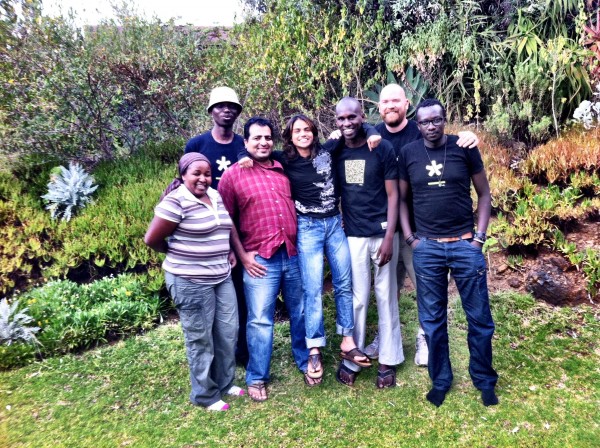
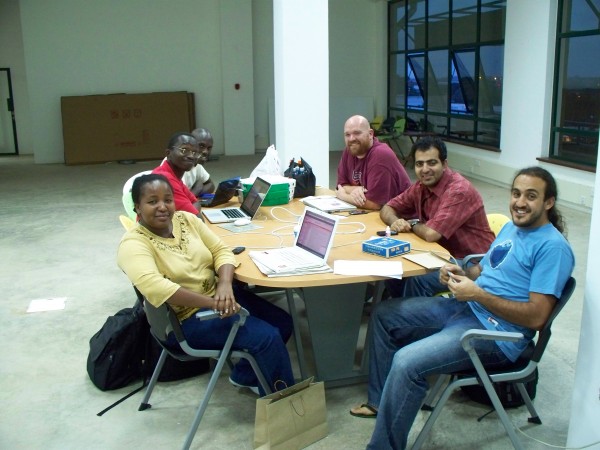
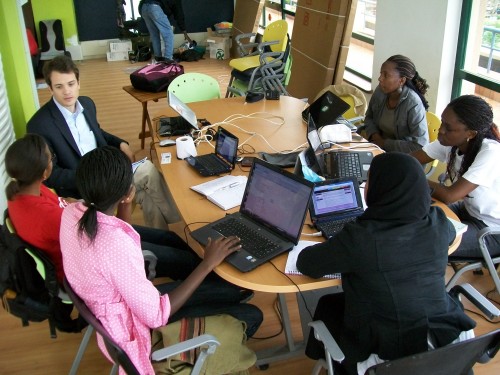
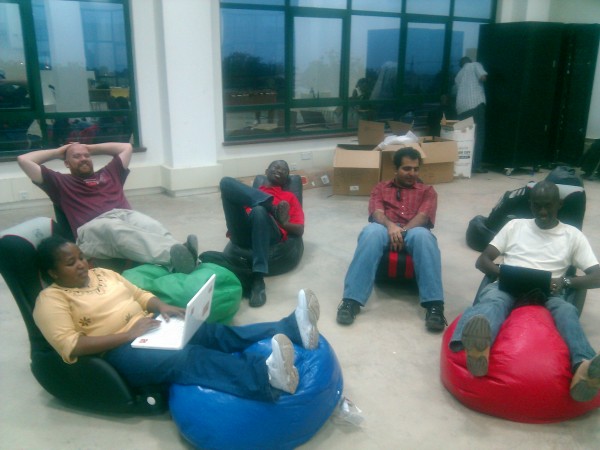
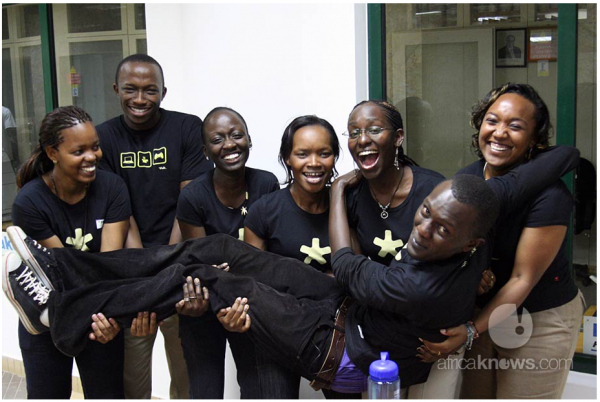
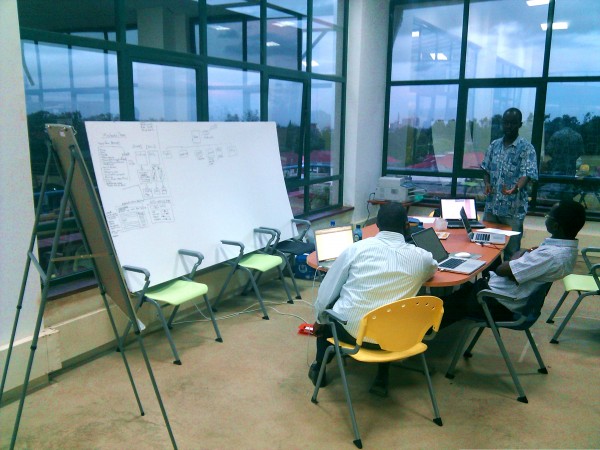
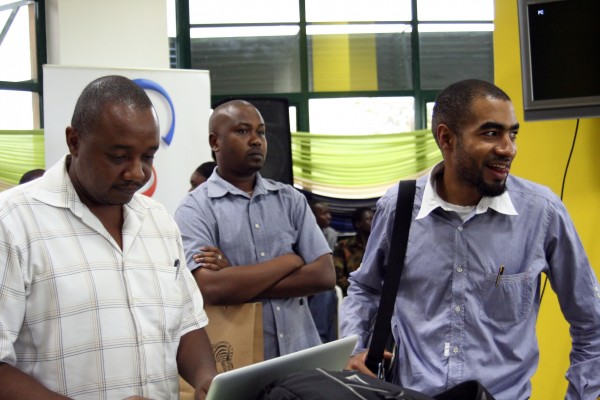
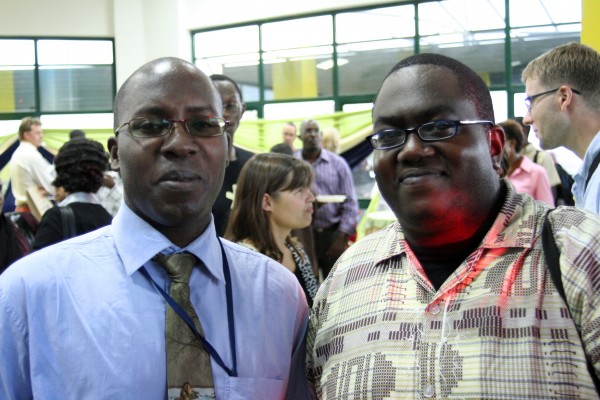
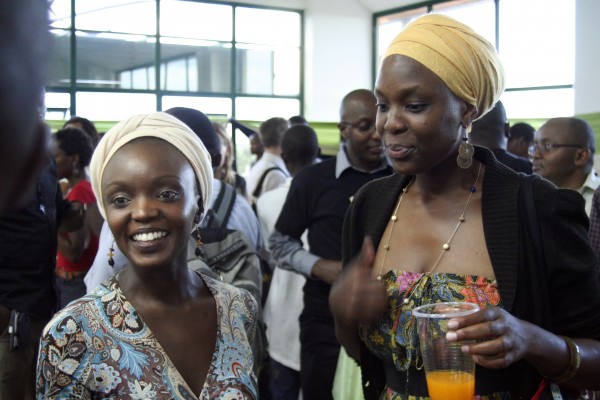
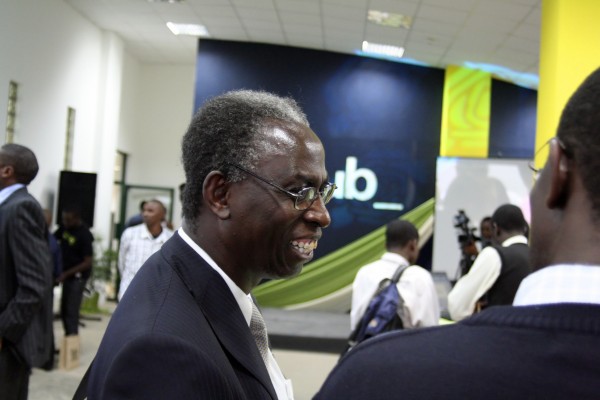
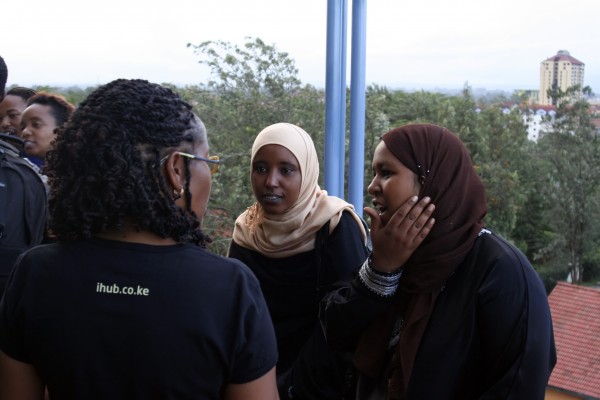
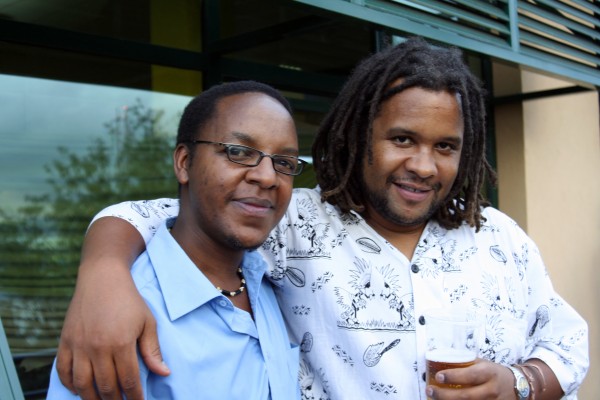
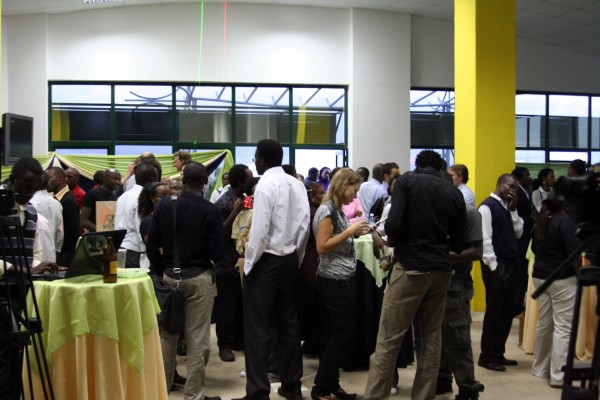
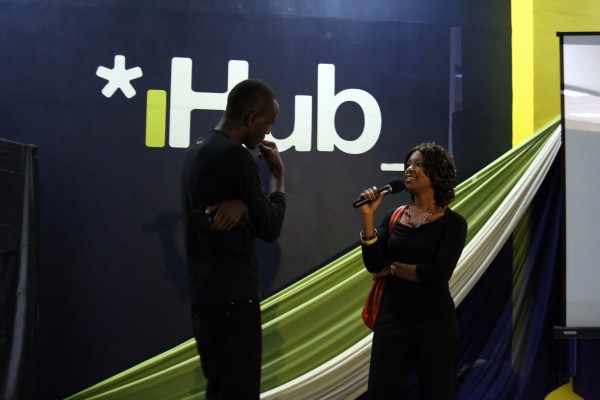
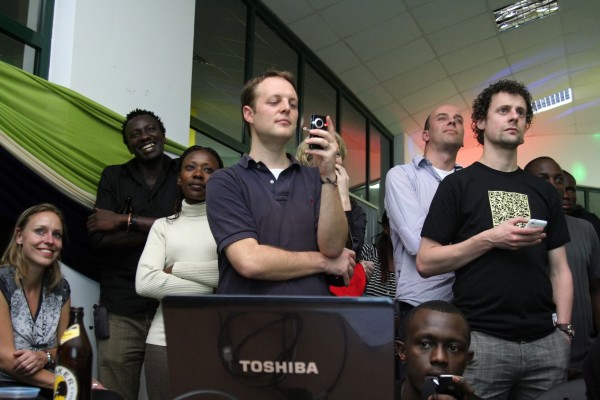
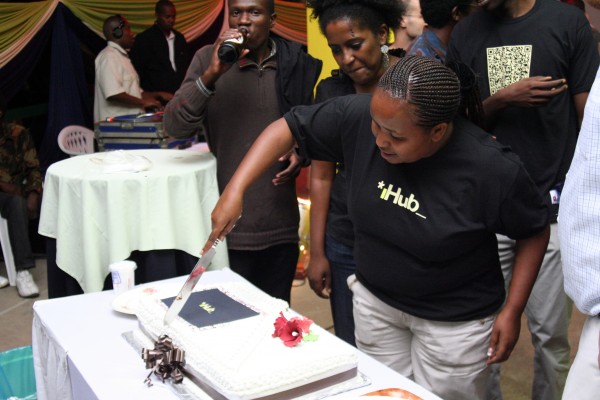
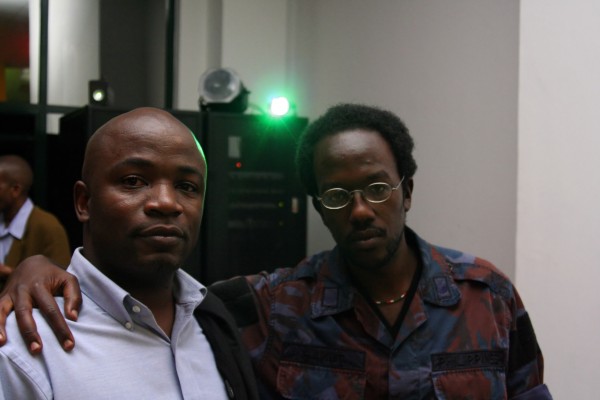
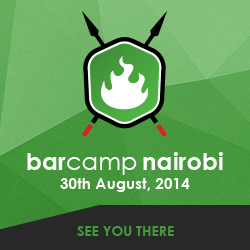 Barcamp Nairobi 2014 is set to begin, seven years after the first one was held. It’s one of those events that brings people out of the woodwork around the city, where techies who don’t normally meet end up having great conversations, and relationships are formed.
Barcamp Nairobi 2014 is set to begin, seven years after the first one was held. It’s one of those events that brings people out of the woodwork around the city, where techies who don’t normally meet end up having great conversations, and relationships are formed.
This Saturday, Aug 30th at 08:00, your chance to lead a conversation on something interesting begins. Nailab and iHub are hosting it, and we’re expecting 400 people to show up for the event.
Go register now, if you haven’t already, it’s free.
It was while sitting around after Barcamp Nairobi 2008 that the seed for what would become the iHub was planted, and why this post was written (many old blog posts from 2008 here). Many of the people I work with today on the teams at BRCK and Ushahidi were at these same events over the years.
Past Barcamp Nairobi Pics
Discussion topics
You’re the one who decides what the discussion will be, and we’ve seen everything from “how to make yoghurt” to “Python 101” to “blogging for women” conversations (and everything in between).
This year, there’s bound to be some discussions around government surveillance and personal privacy in Kenya.
We entrust our most sensitive, private, and important information to private technology companies. At the same time the increasing usage of technology has attracted the attention of authorities eager to provide caveats on the openness of the Internet and the range of freedoms, which we enjoy online.
That’s sure to be a firestorm, of the best kind…
]]>he iHub started in March 2010, so it’s been about 3.5 years and a lot has happened here in the intervening years. Many people ask me, “so, what has the iHub done?” The best way I could think of to answer that is to just list as much as I could think of, so here’s a rather exhaustive list, though I’m sure that I’m missing some things.
Why Tech Hubs in Africa Exist
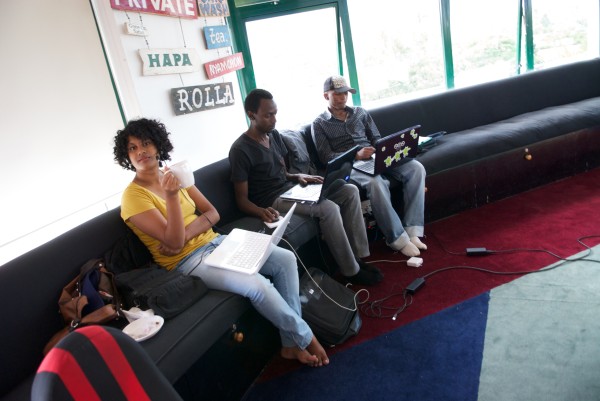
Nairobi tech community working at the iHub, circa 2011
Before I get into that though, maybe a framing on why tech hubs exist is important. They’re not just there for startups, in fact our thoughts on incubation and products going back to 2010 was just pre-incubation and connecting to other businesses and investors. Places like the iHub exist to connect this community together, while we get involved in other gaps that exist in the market (UX, incubation, research, etc), these are just part of providing a place where serendipity happens for those who are involved across the network.
These spaces are more than just nurturing talented entrepreneurs, and to not see that means you’re missing the bigger picture on why they exist. They’re not only about entrepreneurs, though we have seen some of them grow from nothing to 40-person orgs that run across multiple countries.
The tech hubs in Africa are more than just places focused on products, much of what goes on is about connecting the people within the tech community in that area to each other and to the greater global industry. For instance, we started Pivot in East Africa, an annual event that does two things: First, it created a culture where the entrepreneurs learned how to pitch their products. Second, it gave a reason for local and global investors and media to come and see what’s going on. Both funding and media coverage have resulted.
Another example is the connecting of global tech companies to local developers, the training that comes out of it for everyone from network operators to Android devs. Google, Samsung and Intel all play strongly in that space.
Some work at increasing the viability and skillsets of freelancers. Whether they’re web designers or PHP software engineers increasing their understanding of how to setup a company, know what IP law is about, take training on project management or quality assurance testing – these all add up to a community that is evolving and becoming more professional.
Those are just a few of the things that tech hubs do across Africa. I can speak for the iHub in Kenya, but know that there are others such as ccHub in Nigeria, Banta Labs in Senegal, ActivSpaces in Cameroon and the other 19 tech hubs in the Afrilabs network are all doing amazing things that create a base for new innovative products, services and models to grow out of. There are new models for ecosystem development around tech in Africa revolving around these technology hubs that are, and will breed, more innovation over time.
New initiatives and organizations from the iHub:
m:lab – first tech incubator in Kenya (2011)
Mobile testing room – all the tablets and phones from the manufacturers (2011)
iHub Research – tech focused research arm (2011)
UX Lab – first user experience lab in East Africa (2012)
iHub Consulting – an effort to connect freelancers to training and businesses (2012)
Savannah Fund – a funding and accelerator program (2012)
Cluster – first open supercomputer cluster in East Africa (2013)
Gearbox – an open makerspace for rapid prototyping (2013)
Code FC – iHub Football Club
Volunteer Network team – the iHub internet network was setup, and is run by, volunteers
Startups who met, work, or started in the iHub:
BitYarn
NikoHapa
KopoKopo
M-Farm
BRCK
Eneza Education
Ma3Route
Uhasibu
Fomobi
Whive
Zege Technologies
Afroes Games
iDaktari
MedAfrica
SleepOut
M-shop
Angani.co
Wezatele
AkiraChix
Upstart Africa
Juakali
CrowdPesa
Elimu
iCow
Sprint Interactive
Lipisha
6 Degrees / The Phone book
Pesatalk
Skoobox
Waabeh
MamaTele
RevWebolution
Smart Blackboard – Mukeli Mobile
Not all groups start their company at the iHub, but they do meet their future business partners there. The Rupu founders met at an iHub event, and subsequently went on to grow their business, the same is true of companies like Skyline Design, and probably many others who we don’t even know about.
It turns out that serendipity is intrinsically hard to measure.
Larger events, groups and meetings:
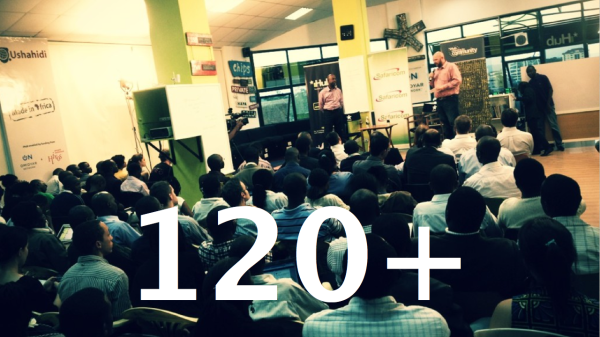
One of the 120+ events that takes place at the iHub each year.
- Pivot East – annual pitching competition for East Africa’s mobile startups
- iHub Robotics (now Gearbox community) meet-ups and build nights
- EANOG – East Africa Network Operators Group
- Kids Hacker Camp – 40 kids hack on Arduino, learn about robotics and sensors in a week long full-day hackathon, in partnership with IBM
- NRBuzz – A monthly event on sharing research on new technologies and communication
- Summer Data Jam – an annual 6-weeks training on Research and Data
- Tajriba – month-long user experience event
- m:lab mobile training – 22 students, 4 months, business and mobile programming (2 years to date)
- Legal month – annual event with visiting legal professionals leading workshops
- Barcamp Nairobi (2010, 2011, 2013)
- Waza Experience – volunteer outreach initiative to expose Kenyan youth to technology and spur creative thinking, problem solving, and better communication skills
- Fireside Chats – A session for VIP and seasoned speakers
- Mobile Monday
- Wireless Wednesday
- JumpStart Series
- Pitch Night
- iHub Livewire – music concert by the iHub community
- iHub Research Coffee Hour
- We have a Policy Formulation Team which consists of Jessica Musila, Martin Obuya Paul Muchene, and Jimmy Gitonga. Each one of us sits or has sat through a policy formulation process, such as the AU CyberSecurity (Martin and Paul) and MySociety, Mzalendo (Jessica Musila) and National Broadband Strategy (Jimmy Gitonga).
Outreach events
Egerton University
Catholic University
Kabarak University (Nakuru)
JKUAT (Juja)
Dedan Kimathi (Nyeri)
Maseno University
Nelson Mandela University – Arusha
Strathmore / Intel
University of Nairobi – School of Computing and Informatics
Research-related activities:
Launching of the Data Science and Visualization Lab – 2013
First Summer Data Jam Training – 2013
Research published:
- Digital libraries and crowdsourcing – http://bit.ly/1boQpeI
- The Gap Between Mobile Application Developers and Poor Consumers: Lessons from Kenya. Proceedings of CPRsouth8. September 2013.
- 3Vs Framework for Crowdsourcing. August 2013.
- Umati Final Report June 2013.
- Umati: Kenyan Online Discourse to Catalyze and Counter Violence. IFIP 2013 Conference Proceedings. May 2013.
- Startup Business Models and Challenges for East African mAgriculture Innovations. IST 2013 Conference Proceedings.
- Mobile Phone Usage at the Base of the Pyramid in Kenya. InfoDev World Bank. December 2012.
- M-governance: Exploratory Survey on Kenyan Service Delivery and Government Interaction. IST 2012 Conference Proceedings.
- Increasing Kenya Open Data Consumption: A Design Thinking Approach. Proceedings of ICEGov 2012.
- Meshcasting News in the Port Harcourt Waterfronts. Internews. May 2012.
- Development of Local Educational Digital Content For Schools In Kenya Using The Mobile Device As An Acceleration Tool To Enhance Learning And Facilitate Collaborative Learning
- Growth Of Mobile Education Platforms And The Impact On Learning In Primary Schools In Kenya
List of infographics created (PDF Links):
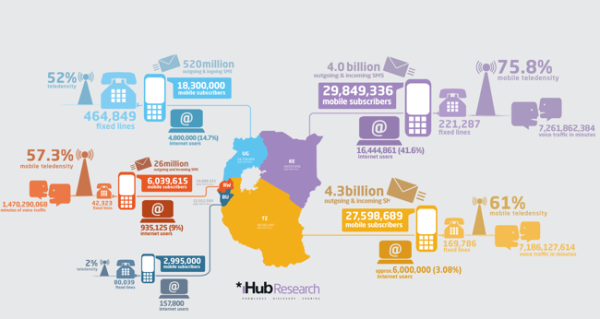
Mobile Technology in Tanzania: 2011
Mobile Technology in Uganda: 2010/2011
Mobile Technology in Kenya: 2010/2011
Kenya Open Data Pre-Incubator Plan: 2012
3Vs Crowdsourcing Framework for Elections: Using online and mobile technology: 2013
How to Develop Research Findings into Solutions using Design Thinking: 2013
Mobile Statistics in East Africa: 2013
iHub Infographic: 2011
Crowdmap Use
Mobile Tech in East Africa: 2011
An Exploratory Study on Kenyan Consumer Ordering Habits
Tech hubs in Africa research (PDF Links):
ICT Hubs Model: Understanding the Factors that make up Hive Colab in Uganda: August 2012
ICT Hubs Model: Understanding the Factor that make up ActivSpaces Model in Cameroon: August 2012
The Impact of ActivSpaces model (in Cameroon) on its Entrepreneurs: January 2013
Draft Report on Comparative Study on Innovation Hubs Across Africa: May 2013
ICT Hubs model: Understanding the Key Factors of the iHub Model, Nairobi Kenya: April 2013
ICT Hubs model: Understanding Factors that make up the KLab Model in Rwanda: April 2013
ICT Hubs model: Understanding Factors that make up the MEST ICT Hub – ACCRA, Ghana: April 2013
ICT Hubs model: Understanding Factors That Make Up Bongo Hive, Lusaka Zambia: April 2013
ICT Hubs model: Understanding Factors that make up Kinu Hub Model in Dar es salaam, Tanzania: April 2013
Key partnerships:
- Intel
- Wananchi Group – ZUKU
- SEACOM
- Samsung
- Microsoft
- Nokia
- Qualcomm
- MIH
- InMobi
VIP speakers:
- Michael Joseph, Safaricom
- Joseph Mucheru, Google
- Vint Cerf, Google
- Stephen Elop, Nokia
- Marissa Mayer, Yahoo
- Bob Collymore, Safaricom
- Larry Wall, Creator of Perl
- John Waibochi, Virtual City
- Mike Macharia, Seven Seas
- Ken Oyola, Nokia
- Isis Ny’ongo, Inmobi, Investor
- The tweeting Chief Kariuki
- Louis Otieno, Microsoft
- Dadi Perlmutter, Intel
- Susan Dray, Dray and Associates
In both places I was struck by how different each country is, and the challenges and opportunities that arise due to the tech community’s connectedness, regulatory stance and local entrepreneurship culture.
Some Theories
South Africa has so much infrastructure, you’re immediately struck by how money isn’t an issue there. The lesson I took away from the DEMO Africa conference is that South Africans are far, far ahead of the rest of the continent in enterprise apps and services. They tend to see themselves as “not African”, and try to identify with Americans or Europeans. This comes out in their tech products, they have a more global focus and tend to fill the gaps that are needed by the many multinational corporates that call South Africa their home in Africa.
Nigeria has so many people, it overwhelms in it’s pure mass. It’s a bit cramped, louder, and more energetic than almost any other country in Africa. Nigerians have a long history in entertainment, with their Nollywood films and music spreading across the continent. It wouldn’t be surprising to find a killer entertainment consumer app coming from Nigeria, that can be exported regionally and internationally.
Kenyan tech companies tend to focus on localized consumer needs, and we have a competitive advantage in anything to do with mobile money. Even in the secondary and tertiary uses, I’m always struck by how much more advanced the Kenyan startups are with local eCommerce products and marketplaces than their other African counterparts.
Kenya is smaller than Nigeria and has less infrastructure than South Africa. Why then are there so many more startups per capita, more innovative products coming from Kenya right now?
A History of Community
Kenya’s technology scene is vibrant and there’s a certain connectedness amongst the community that isn’t found in the other two countries, yet.
I was in Ghana in 2009 for the first Maker Faire Africa. I went around visiting a lot of tech companies and individuals I had gotten to know via blogging over the years. What struck me at the time was that there wasn’t even a tech mailing list that connected the community. We’d had the Skunkworks mailing list in Kenya since 2006. My assumption had been that every country with any type of critical mass in tech had a forum of some sort for connecting tech people to each other.
20+ members in the Ghana tech community came together at Maker Faire Africa and decided to start Ghana tech mailing list. I’m still subscribed to it, and it’s a great resource for both myself and those using it. With that list, and the founding of MEST in 2008 (their tech entrepreneur training center) that Ghana’s tech scene started to get connected and move forward strongly together a couple years ago.
Fast forward to Nigeria a couple weeks ago. As far as I can tell, there are some tech-related forums, though not a mailing list. These have been valuable in connecting people, but it seems that the ccHub, founded last year, is the start of a real connectedness between members of the tech community. I got the feeling that all the energy and entrepreneurialism that makes up the Nigerian culture of business now has a tech heart and that we’ll see an acceleration of growth in the coming years that has been missing until now.
For many years, the tech bloggers of South Africa organized and centralized conversations around tech with events like 27Dinner, BarCamps and more. They have long-standing tech hubs, such as Bandwidth Barn, they have a network of angel investors and greater access to VC funding. There wasn’t a centralized mailing list or forum back in the day (before 2008) that I know of. A few years ago we saw the rise of Silicon Cape, an initiative to bring attention to Cape Town’s startup culture.
At AfricaCom an interesting discussion ensued around South Africa’s tech community and questions on why it wasn’t getting as much attention or traction as Kenya. Two points were brought up that I think are incredibly important.
First, while Silicon Cape is focused on branding (and doing a good job of it), what is really needed is someone to bring the new tech hubs, startups, angel investors, media, academia, corporations, and even the government together. There’s a lot of activity, each in it’s own silo. It’s a hard job being the trusted bridge between these different parts of what can be a very opinionated and political community. I’d suggest that Silicon Cape’s mission should be to do just this.
Second, In Kenya and Nigeria the founders of startups tend to look a lot like a cross section of the country’s population. The tech community in South Africa doesn’t look a lot like the racial makeup of the country. to put it bluntly, I rarely see a black South African tech entrepreneur. Not being from there, I’m not sure why this is, so it’s just an observation. It’s hard to build a product for a community that you’re not from, nor understand, so I can’t help but think that the South African tech scene would benefit greatly by having more people building companies to solve problems from all parts of that country’s stratified makeup.
A Connected Community
Sitting at 38,000 feet writing this piece, I keep thinking how there seems to be a link between the connectedness of a tech community in a country and it’s vibrancy as an industry. Though I realize there are other variables, this explanation helps me explain why Kenya is further ahead in some areas than other countries.
As I look to Kenya more deeply I’m struck by how important the egoless actions of individuals like Riyaz Bachani and Josiah Mugambi (Skunkworks), Dr. Bitange Ndemo (Government), Joe Mucheru (Google), and others have been in setting us on a trajectory that we all benefit from as the whole becomes greater than the sum of it’s parts.
This theory of a connected tech community doesn’t mean that the everyone always agrees or walks in lock-step with each other. There’s a healthiness in internal critique and desire to find solutions beyond the status quo of the moment. However, I do think it does provide a foundational element for cities and countries trying to grow a more meaningful and vibrant tech community.
The connectedness can come in two ways, digital and analog, and will have a different flavor in each country that mirrors it’s own culture. It helps to have a centralized digital space to throw out questions, opinions and find answers on efficiently. Equally, I think we’re seeing that analog, physical meeting spaces that are represented by the growing number of tech hubs around the continent are another way to accelerate the connectedness needed to grow.
Africa’s tech hubs are the new centralized meeting spaces, the watering holes, for connectivity and connectedness. However, it’s not enough to have a space, without local champions who are willing to make it their mission to grow, connect and bridge the tech ecosystem (gov’t, corporates, startups, academia, investors), then they won’t work.
]]>The iHub is Nairobi’s nerve center for technology; a place where we can grab coffee, create apps, find funders and build businesses. It’s where the community of web and mobile programmers connect with each other, businesses, the government and academia.
[TLDR version: Championed by credible people, alongside advisors from the community. Experimental mindset. Strong connections to corporates. Strict community focus.]
A brief history
There was a discussion at Barcamp Nairobi 2008 about how valuable it would be for the Kenyan tech community to have a static space of our own. No one would fund that idea. My organization, Ushahidi, decided that we liked it the idea enough that we would fund it. It fit with our overall thoughts on being “open”, it would serve as Ushahidi’s home in the region, and most of all, we thought we could use our good fortune to find and help the next startups in Kenya.
Thus, I moved back to Nairobi in 2009, with funding from Ushahidi via Omidyar Network and Hivos, to build the iHub. I quickly selected a space, and picked the energetic and gifted Jessica Colaco as the Manager. In March 2010 we started work on the space, and in June it was open for use.
Though we had provided funding for the first 2 years, the iHub is an independent Ushahidi initiative. Meaning, that it runs outside of the normal Ushahidi operations and organization. Though the Ushahidi team has full access for the space, we have a very light footprint, and use it the same way everyone else in the community does. We knew that even though we were the most neutral of parties, with a ton of local credibility, trying to “own” the space would fail – just as it would if it had been named the “Google iHub” or the “Nokia Innovation Hub”. It had to be owned by the community, and that meant name and usage both.
The community
At the heart of all that happens at the iHub is the community. They designed the room layout and logo, run the network, hold events, built the website, create the house rules and drive the direction of the space. The management of the space is there to provide basic infrastructure support, a foundation, which the community then builds on to make the space what it is today.
What’s important to understand is that we come from this community too, we are it. We knew it could work because it was ourselves we were building for. When people ask me if I could do the same thing in another city, I respond that it would be questionable. A space like the iHub needs to be put together by someone from that community of techies who understands at a basic level the needs and has the credibility within it to make it happen.
As the iHub grew, we realized that all of the administrative duties, mixed with community interaction, were too much for one person. Thus we brought on Tosh to be the community manager, where he is in charge of working with people, memberships and events. His job is to aggregate, translate and enable the communities needs.
The advisors
That “being part of the community” was what drove me to start looking for a small team of advisors who could help make decisions, especially early on. This iHub advisory board was made up of 4 influential and highly credible technology players from Nairobi, plus myself. The greater community could appreciate that they were being represented well, and it provided a small enough team to move quickly.
Initial roles for this team were to make the final decision on build out design, logo and name, as well as figure out how to deal with an influx of members in a tiered membership model if the need arose (and it did, quickly). With over 4,300 white-level members, this team is also responsible for making the decisions on who gets green-level membership, the people who ultimately get to have free and unfettered access to the iHub facility.
The design
The design of the space was very important, and we were lucky to have Fady Rostom and Kwame Nyongo to lead the design team. They spent a lot of time listening to the ideas and thoughts of the advisory team before they started drawing, and it shows in what was built.
We needed a place that was open, and could be flexibly turned from community commons to event space. We wanted a subsection of the space to be rentable desks, for pre-incubation and co-working activities. At no time was a coffee shop not included – it was seen as core to the vibe and culture of what would happen here. We’d need a secure server room, and plenty of ethernet and electrical points, both inside and outside.
Most of all, the iHub needed to be a place where Kenyan techies were proud of. A place that was uniquely ours, and that we could show off to our visiting friends from abroad. It had to have the feel of being any high-tech community space in the world, with a Kenyan flavor. And it is.
The sustainability strategy
Early on we had no idea how we would pay for things beyond the first 2 years. We projected costs, but didn’t know where the revenue would come from. We had some ideas, but instead of creating a grand plan, we decided to take a very experimental approach, iterating on what worked and killing ideas that didn’t fit.
Right now the iHub has revenue coming in from red members (co-working desk rental), events and the new research arm. Events and desk rental were obvious and worked from very early on. The R@iHub arm didn’t come into being until January of this year, and was very much a big experiment – which appears to be working marvelously well. Jessica’s background is as a technology researcher, and she’s built a brilliant team around her to focus on this. Already we can see that 50%+ of future income will come from this initiative.
The other experiment was taking lead on the m:lab, a space the same size as the iHub which sits one floor beneath us. It’s an incubator. It plays the iHub’s foil, where upstairs is about community, openness and fun, the m:lab downstairs is about professional tech companies building quality products and making it into the market. We took the lead on the consortium behind this, and it is seen as a sister-facility to the iHub, with many shared services between the two.
The corporates
Both the iHub and the m:lab have strong corporate partners. Early on, before the first brush of paint was dry in the iHub, we had started talking to big technology corporates who call Nairobi home. Large tech corporations need an active dev community, and the dev community needs them. Luckily, Kenya is geographically well-positioned for some great companies to make it their home in the region, which worked well for us. We also happened to know a number of them personally, which sped up the discussions and interactions considerably.
We didn’t want to just have corporate partners who were sponsors. We made it very clear early on that their money was less important to us than what value they could add to the space that would help the dev community, but that it was a 2 way street. If we couldn’t facilitate a strong value back to them from the local tech community, then it was a no-go.
Fortunately, despite our lack of a clear idea of exactly how things would work, or what our metrics of success would be, we found some great patners. Nokia, Google, Wananchi and Microsoft are corporate partners with the iHub, and downstairs we have MIH, Nokia and InMobi working with us.
A small aside here, which isn’t corporates, but we’ve also nurtured strong connections with the Kenyan government, though we take no money from them. This also applies to academia.
Final thoughts
By the end of 2010 people were already claiming that the iHub was a model for technology engagement, aid stuff (gah!), etc… in Africa. I thought that was a premature statement, it was an experiment and it still is. The success of the iHub has come from a strong foundation of advisors and community members who understand their city, their peers and their region.
The success of other tech hubs across Africa will be based on leadership credibility, and ability to engage their community.
Much of the iHub’s success comes from a community that works together. In that spirit of “harambee” that is so much a part of our Kenyan life. While there is always healthy competition, we would rather work together and celebrate each others success, and ultimately help each other along with the knowledge that if more of us succeed, then we all benefit.
I hope to see many more labs and hubs across the continent, and we’re seeing them grow too, in Cameroon and Ethiopia, Uganda and Nigeria. Though some of them will need financial assistance to get going, like Ushahidi did with the iHub, they’re organic growth is what makes them viable.
]]>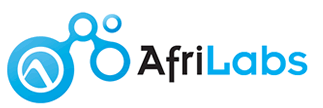 It was there that the idea for Afrilabs was born: an association of these facilities across the continent. The association is for linking the spaces for learning, growth, and to provide greater mass for the entrepreneurs that we work with.
It was there that the idea for Afrilabs was born: an association of these facilities across the continent. The association is for linking the spaces for learning, growth, and to provide greater mass for the entrepreneurs that we work with.
The labs serve as an accessible platform for bringing together technologists, investors, tech companies and hackers in the area. Each lab shares a focus on young entrepreneurs, Web and mobile-phone programmers and designers.
Spaces and Models
The founding 5 member facilities are the iHub in Kenya, ActivSpaces in Cameroon, Hive Colab in Uganda, Nailab in Kenya and Banta Labs in Senegal.
There aren’t many spaces like this across Africa, and there were even fewer a year ago, though we hope that more will quickly be added from many other countries. Already we’re hearing about new spaces popping up in Nigeria and the Ivory Coast, with planned ones in Tanzania and Ghana.
We’re all experimenting with our models. Some are pure coworking, some incubators, others provide freelancers a chance to act as a collective agency, while some serve as a community commons where tech serendipity happens. My take is that we’ll end up having as many models as the unique city cultures that spawn them, mixed in with the ethos of the founders. And there’s room for many more, even in the same city.
Why Afrilabs?
The Afrilabs Association serves a few purposes:
- Provide an association that is easily accessible by lab and hub managers, where they can learn from their peers, understand the different models and connect easily.
- Provide a bigger target (continent vs country) for attracting outside investors for the entrepreneurs in the labs. Possibly with an Afrilabs fund, accessible only through the filter of an entrepreneur’s local lab.
- AfriLabs seeks to build on this common vision and further promote the growth and development of the African technology sector.
I’m excited to see the dawn of this new open and accessible model of coworking, incubation and community spaces for Africa’s tech industry. Not only will the labs receive greater visibility, but businesses and investors now have a channel to more easily source talent and investments within Africa’s tech community.
If you run a tech lab or hub in Africa, or are putting together one, make sure you contact Afrilabs.
]]>M-Farm
“Great ideas are always born on a tissue paper”
Jamila talks about the genesis of their idea, M-Farm: To bring farmers together to buy and sell together.
IPO48 put together a competition for Kenyan techpreneurs to pitch their ideas – the Akirachix won the 1,000,000 Ksh prize with the M-Farm idea.
How does it work?
Prices are found by information collection through crowdsourcing of that information from the farmers and by having people go out and find out the prices from the sellers as well, in locations all over Kenya.
Their goal is to give the farmer more information, through reports, to help the farmer make an informed decision on what to grow next. It’s a mixture of historical sales, predicted weather, and other information that would help them make a better decision. M-Farm works with the farmers cooperatives as well.
The unique thing about M-farm is the socialization of the farmers. It’s not just about information, it’s about the community.
Overlap
Limo Taboi and Kahenya are giving a presentation on overlapping, the term used by Kenyans when guys go into the wrong side of the road to pass others and cause a massive traction jam. Their new website is Overlap.co.ke.
“We have bad driving habits in Kenya.”
We’re trying to find a way for ordinary Kenyans to track eachother’s bad driving using the Ushahidi platform. This is everything from buses and matatus with no lights, to overlapping and reckless driving.
Right now it’s a citizen effort, but they’re hoping that one day the police will take note as well.
You can report in by submitting something to the website, by email in a report to overlap.kenya@gmail.com or using the #OverlapKE hashtag on Twitter.
Nokia Infrastructure Support
Nokia is a sponsor of tonight’s Mobile Monday. Agatha Gikunda is here to talk about the way Nokia is doing things in East and Southern Africa to engage with developers. They’re really trying to reach out to small businesses and developers to build more apps and services with Nokia software and for their handsets. Most of all, they want to help with the marketing of your new product, using the Nokia marketing infrastructure through partnerships.
One example of what they’re doing took place last week. They trained 25 developers in QT and Advanced Java at the University of Nairobi. 10 universities and key training institutions were engaged and participated in the training.
Another way they’re working with local developers and entrepreneurs is helping local app developers to market their product. Their example here is AfroHotorNot, an app that they go around and market at universities. Beyond local marketing, they also help you publish your work globally and make money off of your apps.
Other partners that Nokia has helped market globally, beyond Kenya are Sharper Innovations (LSU, Afrohotornot and Wazzup), Symbiotic Media (Tusker Project Fame and Daily Nation Media) and Shimba Technologies (Tuvitu App and MTV Music Awards app).
To get paid, Nokia takes 30% and pays out 70% to the developer. You have to have a local bank account to get paid directly, and the money is released once you reach around 100 Euros. There isn’t a really good way to get paid in Kenya, but they’re trying to get a deal with local mobile operators for operator billing to happen.
About 30 apps have been created by Kenyan devs for the Ovi Store. About 99% of those are local focused, only 3 are focused on the global market.
Agatha was asked about when they’ll have local billing integration. The answer is that they’re trying but they don’t know when it’ll happen.
To get started with the Nokia Ovi Store, go to publish.Ovi.com.
Safaricom and Innovation
“I tell my colleagues that you need to get off that ivory tower and start sitting with everyone. See what ticks.”
– Nzioki Waita, Head of Strategy and New Business at Safaricom
ICT is going to make the next 500k jobs in Kenya, and Safaricom plans to be on the forefront of that. He goes on to talk about how Safaricom is trying to be more friendly to smaller organizations and entrepreneurs in the country. You used to be able to predict with some certainty the types of value added services that would work. Now, enter the smartphone and data connections, and your phone is now a vehicle to a new destination. Life became more complex to us.
We now get people walking into our office saying “I have an idea, it will make money for both of us.” The people they were coming to talk to weren’t set up to take on these kinds of ideas. This made them form a “new products” division where Mpesa and the VAS team’s are seated.
They’ve moved away from the stages where you’d walk in with an idea and then you’d never hear from Safaricom again. Now they have to deal with the ideas, and they’re trying to understand a better way to do that (see my post on the Safaricom Innovation Board). They’re trying to figure out how to channel it.
What Safaricom is doing:
- SDP (Service Delivery Platform) plus and App store launching at the same time.
- Safaricom Academy (with Strathmore Univ). A way to get young innovators working on their ideas with training.
- Incubation Centre. A small space within Safaricom to incubate ideas on their infrastructure
- The Safaricom Innovation Board – A group who helps set policy and buffers devs from Safaricom and vice versa.
- The Safaricom Garage – a place for devs to come and work on a portion of the Safaricom network (location based services, billing, etc.)
Nzioki won’t discuss revenue share, unfortunately. Too bad, they need to be a lot more open about the money side of this equation, otherwise it will be perceived as the same old Safaricom.
John Waibochi of Virtual City
Virtual City is also a sponsor for the Mobile Monday event, and John Waibochi, the CEO is here. Virtual City recently won the $1m Nokia Growth Economy Venture Challenge about 3 months ago.
]]>Today is only a half day at Barcamp Nairobi 2010. We’re getting underway, and there are 5 talks so far:
- 9 colloquial Kenyan languages in Whive.com by John Karanja
- Live mapping using OpenStreetMap and GPS units by @mikel
- “Build a Drupal site in 20-minutes” by @batje
- “Geek girls in Nairobi” by the Akirachix
- Explaining the Kenya ICT Board $3m grant by @Kaburo
- Google Geo API
The $4 Million Kenya ICT Board Grant
“US$ 4 Million of the proceeds for Grant Applications for the development of digital content and software applications.”
It was announced 10 days ago, and there are already 500+ applications. Final applications are due by July 19, 2010.
$10k for individuals and $50k for organizations. That is a Kenyan citizen and above 18 years old, for companies, you have to be registered in Kenya. You have to show your resume/CV for the leadership team.
The application can be done online.
Two main areas of the grant:
- Government services and applications (5 ministries)
- Any innovative ideas around digital content and software
The first 46 grants will be handed out to both private and public sector ideas and applications. More grants will be given out to companies (30) than private individuals (16), but there will be an equal split between the two groupings.
Grants announced on August 15th, 2010, at which point they will be working on contracts. The grant will be given out in 3-4 tranches, starting in October 2010. The funds have to be spent within 12 months. There will only be 46 grants given out this year (2010).
A single company can apply in multiple rounds for a grant, but will only be given one grant per round.
What protection will your idea be given? The team looking at and reviewing/judging the applications will be signing NDAs. There are 9 judges who will decide the winning proposals, and they do plan on sharing the names of those individuals.
Some people are worried that if they have a new idea, and they’re working for a company, that that company will own it and not them. Kaburo Kobia is suggesting that if they believe that is really the case, then the individuals should break away before then.
If you have any questions, make use of their website, send them an email at grants@ict.co.ke, call them at +254-020-2211960 or visit them on the 12th floor of Teleposta towers.
Google Maps API
Mano is one of the top engineers from the Google Maps team and he was flown out to Kenya specifically for Barcamp Nairobi. He’s giving an overview of what can be done using their API, well beyond the normal pointal use that we see all the time.
I asked him what they’re doing about offline mapping, especially for those of us in Africa who don’t have the same access to connectivity. Mano says that they’re concerned about offline maps as well, which they don’t offer, but not for the reason I suggested. Instead, they see most of the people in the world accessing maps via mobiles, so they need to be able to let that happen when data capability is not within range.
]]>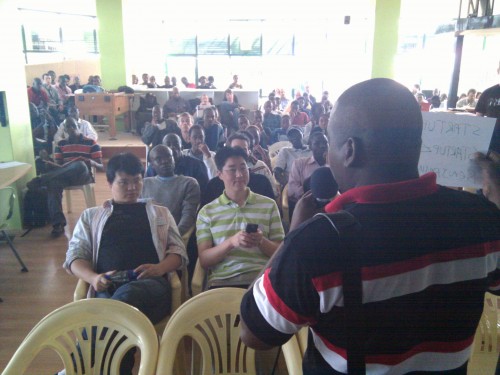
It’s our first chai break and there’s easily 250+ people at Barcamp Nairobi 2010 already. The hashtag is #BarcampNairobi, there is a @BarcampNairobi Twitter account. We’re streaming it LIVE here.
The Barcamp Nairobi 2010 Flickr group is here.
There is blogging going on at the following links (ping me if I miss you):
KosmoReporter (Pictures)
iHub blog
Wannabe Geek (Live Blogging)
Multiplicity
Some amazing things have happened to get us to this point. Phares Kariuki led the organizing team, where people volunteered of their time to organize and create the logo. Sponsors really stepped up, including:
Ushahidi
Mocality
Seven Seas
Zuku
K24
Google Kenya
Kenya ICT Board
iHub (facility)
NaiLab (facility)
Barcamp Nairobi will take place at the iHub and NaiLab, starting at 9am on Saturday June 12th and going late into the night. It keeps going on Sunday with WhereCamp Africa, so all you geo/mapping geeks get ready.
As usual, those who get in early will get a Barcamp t-shirt, until they’re all gone.
Register here. There are already about 300 planning to attend.
A Barcamp Primer
“Barcamp is an ad-hoc gathering born from the desire for people to share and learn in an open environment. It is an intense event with discussions, demos and interaction from participants who are the main actors of the event.”
Those who haven’t been to a Barcamp need to understand something: You make the event. It’s a very democratic event, it doesn’t matter if you’re the Permanent Secretary of a university student, if you have something people want to hear, you’ll have a chance to sign up for a time and room to talk in, and people will vote with their feet on whether or not they like your topic.
We start the morning off with a session where everyone gets a chance to put forward their topic and then sign up for a time and room. The day then begins, and it’s a madhouse of great talks and even better people and connections. Food and snacks are provided, and the new iHub coffee shop is open for you to buy your caffeinated drinks all day long. 
Potential Topcis
- Using my (GPS Enabled) cell phone to avoid traffic
- Cloud Computing Applications in Kenya
- Business Skills for Techies
- Rural ICT
- ICT initiatives for youth
- Mobile Application Development
- Using Google Fusion Tables
- Web design, and why itâ€
 s not as good as it should be in Kenya
s not as good as it should be in Kenya - Hardware hacking
- Tips and tricks for internet connectivity around Nairobi
- Merging mobile and electronic commerce concepts
- Walking-papers.org: openstreetmapping without a GPS
- Drupal, WordPress, Joomla and other CMS hacks
Get your talk ready!
Map & Directions
The iHub is on the 4th floor of the Bishop Magua Centre, directly opposite Uchumi Hyper on Ngong Road.
View iHub – Nairobi’s Innovation Hub in a larger map
It’s hard to believe it’s been 2 years since we last did this, letting 2009 slip by us… I’m really glad we’re doing this in 2010 and happy that Ushahidi is sponsoring it, as well as the iHub providing the space!
]]>